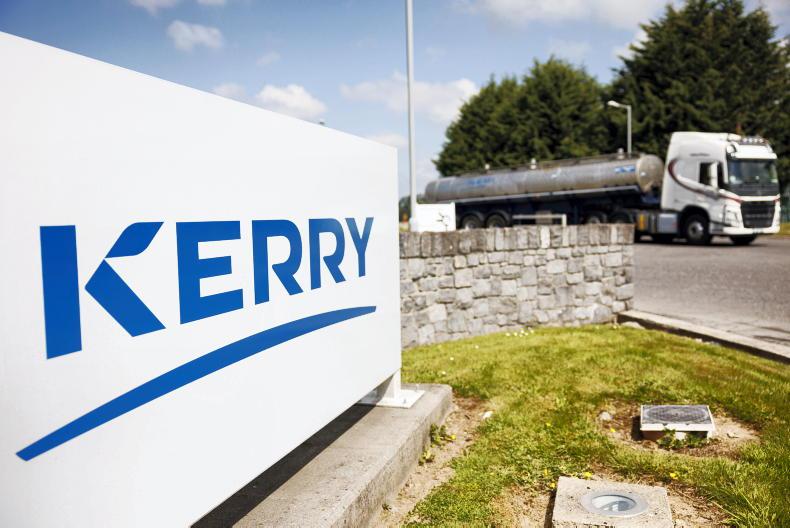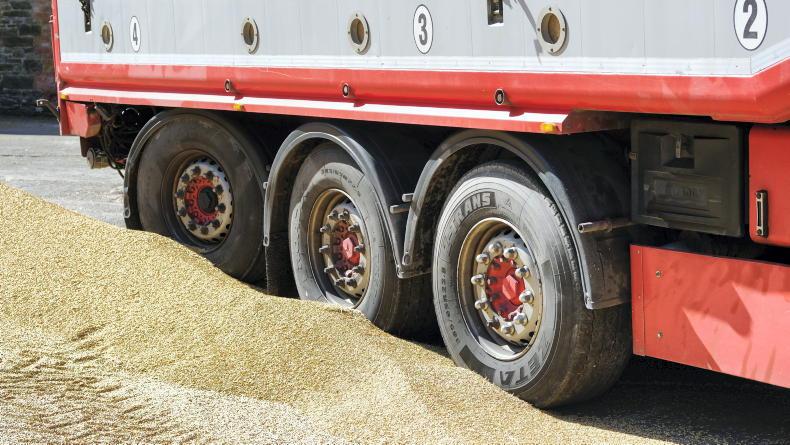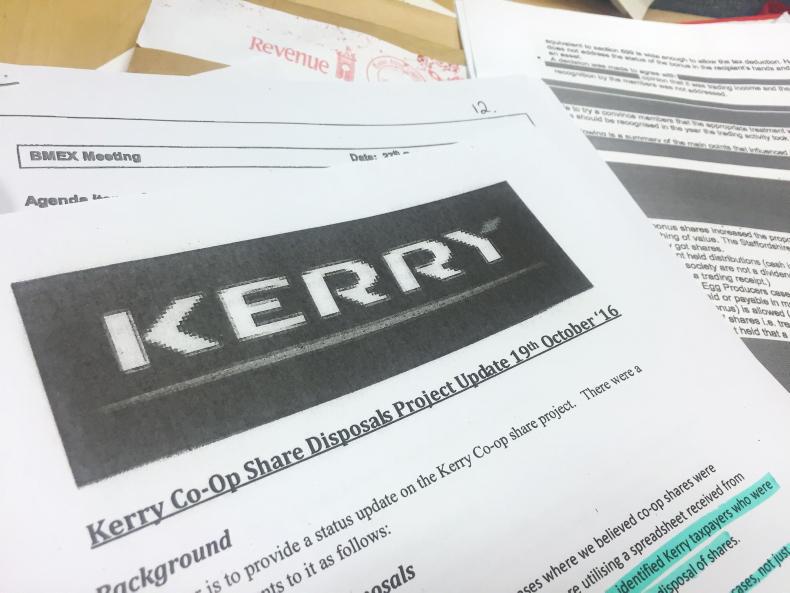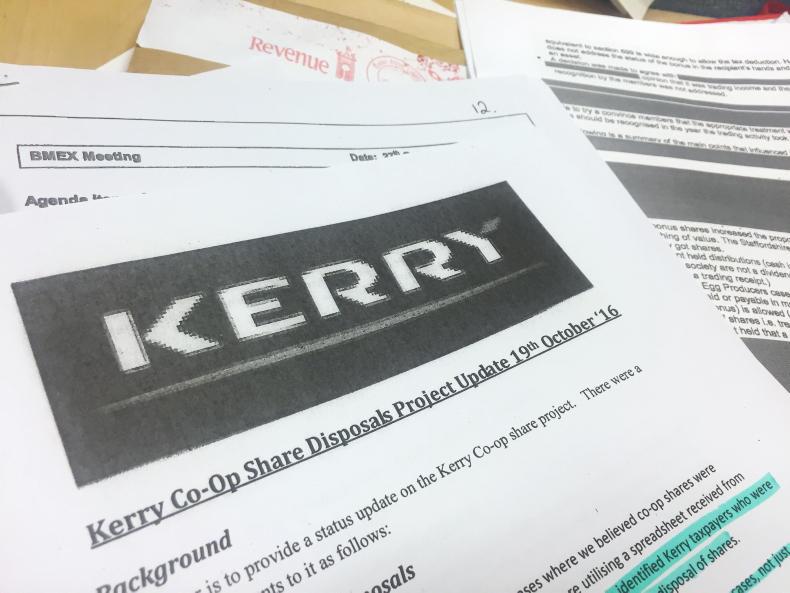The process that led the Revenue Commissioners to issue income tax claims over patronage shares in November had previously focused on capital gains tax (CGT) and capital acquisitions tax (CAT). An internal memo circulated on 18 October provides an update on the “Kerry Co-op share disposal project”, indicating that Revenue officials were until then investigating the tax implications of onward share transfers – and those efforts had already paid.

Between 1 January and 18 October 2016, the Revenue generated a “total yield” of €418,202 from “intervening in cases where we believed co-op shares were sold/transferred without CGT/CAT paid on them”. Case workers checked the records of 194 taxpayers and contacted 37 of them to raise tax queries about their shares. One audit alone resulted in a payment of €39,248.
CGT is due by the person disposing of the shares on their rise in value since they acquired them. CAT is due by the person receiving shares through gift or inheritance.
Share transfers
Revenue identified those taxpayers by comparing lists of those who had declared share transfers and records of interests (dividends) paid by Kerry Co-op to its shareholders. If a shareholder was found to have stopped receiving interest without having declared the disposal of the shares, the Revenue queried their situation.
Kerry tax district manager Anne Dullea described the process so far as a “success”. All similar cases in the south-west region were referred to her office as a result.
The Revenue’s recent move to submit patronage shares received between 2011 and 2013 to income tax instead of CGT and CAT does not mean that it is dropping efforts to recoup missing payments under these taxes. On the contrary, internal documents indicate that “work will continue on this” in 2017. Regular shares (not patronage ones) and patronage shares issued in earlier years remain liable to CGT and CAT when transferred.
Escalation
The full team now in place to target Kerry Co-op shareholders is in fact about to ramp up efforts on this front. During the course of 2016, the Revenue compelled Kerry Co-op to provide “copies of all transfer documentation” related to its shares, and processed the data to enable automated searches. Using taxpayers’ PPS numbers, Revenue staff can now pinpoint suspected undeclared share disposals
faster.
“We have not yet commenced work on this,” the 18 October memo read.
Listen to a discussion of the Revenue's Kerry co-op project in our podcast below:
Listen to "Inside the Revenue's Kerry co-op project" on Spreaker.
Read more
Exposed: Revenue’s Kerry co-op project
3,500 Kerry suppliers to get tax bills this year
Only 128 share sales over seven years
The people at the centre of Kerry shares project
Kerry case leads to Revenue staff manual revision
Revenue knew Kerry suppliers were 'broke' as it sent tax claims
Revenue may target 2013 Kerry spin-out
Revenue to use UK case law to defend Kerry tax approach
Full coverage: the Revenue's Kerry co-op project
The process that led the Revenue Commissioners to issue income tax claims over patronage shares in November had previously focused on capital gains tax (CGT) and capital acquisitions tax (CAT). An internal memo circulated on 18 October provides an update on the “Kerry Co-op share disposal project”, indicating that Revenue officials were until then investigating the tax implications of onward share transfers – and those efforts had already paid.

Between 1 January and 18 October 2016, the Revenue generated a “total yield” of €418,202 from “intervening in cases where we believed co-op shares were sold/transferred without CGT/CAT paid on them”. Case workers checked the records of 194 taxpayers and contacted 37 of them to raise tax queries about their shares. One audit alone resulted in a payment of €39,248.
CGT is due by the person disposing of the shares on their rise in value since they acquired them. CAT is due by the person receiving shares through gift or inheritance.
Share transfers
Revenue identified those taxpayers by comparing lists of those who had declared share transfers and records of interests (dividends) paid by Kerry Co-op to its shareholders. If a shareholder was found to have stopped receiving interest without having declared the disposal of the shares, the Revenue queried their situation.
Kerry tax district manager Anne Dullea described the process so far as a “success”. All similar cases in the south-west region were referred to her office as a result.
The Revenue’s recent move to submit patronage shares received between 2011 and 2013 to income tax instead of CGT and CAT does not mean that it is dropping efforts to recoup missing payments under these taxes. On the contrary, internal documents indicate that “work will continue on this” in 2017. Regular shares (not patronage ones) and patronage shares issued in earlier years remain liable to CGT and CAT when transferred.
Escalation
The full team now in place to target Kerry Co-op shareholders is in fact about to ramp up efforts on this front. During the course of 2016, the Revenue compelled Kerry Co-op to provide “copies of all transfer documentation” related to its shares, and processed the data to enable automated searches. Using taxpayers’ PPS numbers, Revenue staff can now pinpoint suspected undeclared share disposals
faster.
“We have not yet commenced work on this,” the 18 October memo read.
Listen to a discussion of the Revenue's Kerry co-op project in our podcast below:
Listen to "Inside the Revenue's Kerry co-op project" on Spreaker.
Read more
Exposed: Revenue’s Kerry co-op project
3,500 Kerry suppliers to get tax bills this year
Only 128 share sales over seven years
The people at the centre of Kerry shares project
Kerry case leads to Revenue staff manual revision
Revenue knew Kerry suppliers were 'broke' as it sent tax claims
Revenue may target 2013 Kerry spin-out
Revenue to use UK case law to defend Kerry tax approach
Full coverage: the Revenue's Kerry co-op project












SHARING OPTIONS